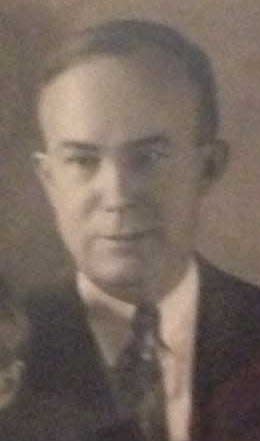Veterans Column: Lt. Wright shares the joys, pains in Paris after WWI with Newark

Six weeks after the signing of the Armistice ending World War I, First Lieutenant Frederick F. Wright continued his letter to the Advocate from Europe on Dec. 26, 1919, detailing his visit to Paris.
“As you debark at the [railway] station, an M.P. looks at your traveling orders and gives you a blue ticket which entitles you to roam at leisure for 24 hours only. On a good pretext, this may be renewed. Everything tends to discourage American soldiers dwelling in Paris, except Paris herself. Of course, there are a lot of warriors who have bivouacked on the Champs Elysees ever since July 1917 and whose service stripes are just as broad and shiny as the buck privates who have eaten beans and corn-willie from Chateau-Thierry to the last gun at Beaumont. But speaking generally, few American officers and very few privates get into the city.
And Paris? Not the Gay Paree of old. The restaurants cease to sell food after 9:30; the famous cabarets on the grand boulevard and in the Latin Quarter are no more. Dancing is merely a tradition. There is no sugar, no butter, no sweet wines; bread is served only on bread tickets. Private motors are still mostly garaged due to restrictions on petrol. And everywhere you spy ladies in deep mourning and waiters, salesmen, conductors, hobbling on wooden legs extending suggestively gloved hands for your tip, or wearing the Croix de Guerre ribbon with several stars, on their shabby civilian coats. But in the show houses are good comedies, in the cinema's Gaby Deslys and Charlie Chaplain attract as in America, and on the Avenue des Italians swirls the most cosmopolitan throng you will find in the world save New York. French officers in their natty blue with fronts resplendent with medals. Algerian and Moroccan natives, bearded and in much the same khaki of our boys. Italians with their formless visor caps; Americans in Sam Browns; Australians with their picturesque Gainsboro sombreros caught up on the side; strapping Canadians, Blue Devils with their tight tunics, a sprinkling of frock-coated civilians and interwoven through all the dandelions on a lawn, the face of the Parisian mademoiselle smiling, chic makeup to perfection. Art has traveled quite a long journey since Mother Eve hung out two fig leaves that first Monday morning. And even if she is not the most beautiful girl in the world, at ten feet range she tricks you into believing so.
Of course, you take a motor bus and see the sights of Paris. The art treasures of the Louvre and Luxembourg have gone south for the winter, but now that Hindenburg’s sword has been laid away with mothballs, they will soon be coming back. And you note no trace of the aerial bomb and the long-range shell except in the church near Notre Dame where a falling roof crashed out over a hundred lives on Easter. The Concorde and Champs-Elysees are crowded with captured German cannons and tanks. It is a wonderful privilege to be over here in France: a treat to get to Paris. But the more you travel. The prouder you are to be an American. It isn’t prejudice – it’s growing wisdom.”
Doug Stout is the Local History Coordinator for the Licking County Library. You may contact him at 740-349-5571 or dstout@lickingcountylibrary.org. His book "Never Forgotten: The Stories of Licking County Veterans" is available for purchase at the library or online at bookbaby.com & Amazon.com
This article originally appeared on Newark Advocate: Newark Veterans: Lt. Wright shares joys, pains in Paris after WWI
